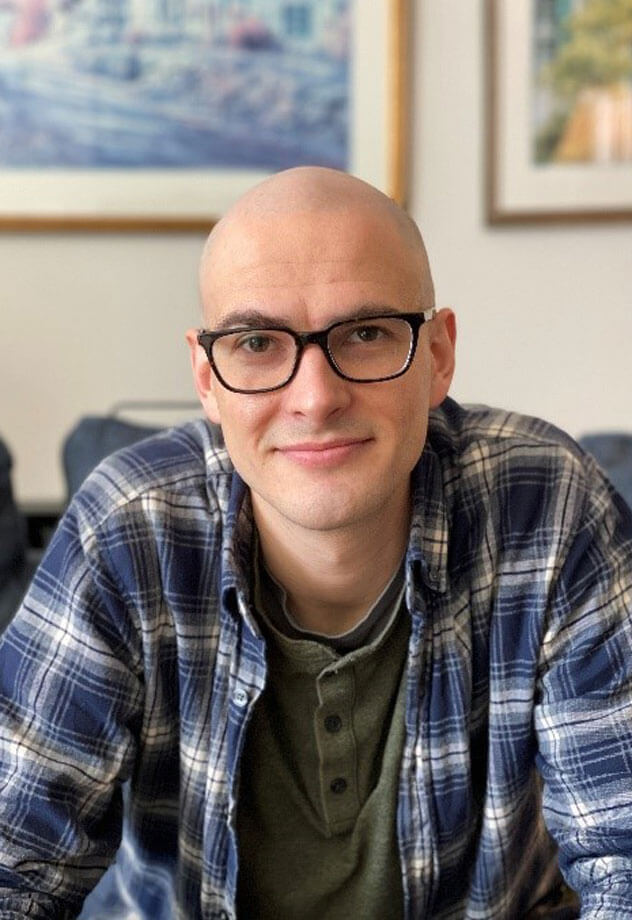I recently sat down with Andrew Lea, a fourth-year medical student who holds a Ph.D. in the history of science and medicine. We discussed his forthcoming book, Digitizing Diagnosis: Minds, Medicine, and Machines in Twentieth-Century America, and the importance of historical perspective in medicine.
Welcome! Tell us about your book.
The book is about early efforts to computerize medical diagnosis and decision-making in the 20th century, and some of the transformations in medical thought and practice that occurred as a result of those efforts.
How did you get interested in that topic?
I was reading a lot of contemporary discussions in the medical literature and popular press about artificial intelligence in medicine, particularly about the novelty and transformative nature of current day efforts. When historians hear any claim of novelty, they are immediately skeptical and wonder what the historical precedents are. So, I started to poke around out of curiosity about earlier efforts to computerize diagnosis, and found some interesting stories along the way.
How did you become interested in history?
It was a lucky stumbling into the field. I grew up in a town called Richland, Washington, the closest city to the Hanford site, which produced the plutonium used for nuclear weapons in WWII. It was an odd town, where there are vestiges of this history everywhere, and it raised a lot of ethical questions for me about the development and use of those weapons. Because of this background, I took a course on the history of science in the Cold War at the beginning of college, and immediately became hooked.
When did you decide to be pre-med as well?
For a while, I thought I would only pursue a Ph.D. and go the professional historian route. Then I volunteered in some medical clinics and really liked the one-on-one patient interactions and the storytelling aspects of medicine, where you have the opportunity to learn about patient stories and tell stories in the process — creating a differential diagnosis or explaining a patient case to a colleague. I thought there were interesting and productive parallels between the two fields that drew me into a career pursuing medicine and history.
How has a historical perspective informed your thinking about clinical medicine?
History shows us how many of the things we do in medicine are made up and path dependent. Sometimes what we do in medicine is supported by evidence, but often we do things because of historical contingencies or because of assumptions and biases that don’t hold up under scrutiny. When clinicians see a category like race-corrected eGFR in the electronic medical record, they may think this is a natural category. But historians are trained to see how categories like these were invented, and how they might incorporate and propagate racial bias.
What advice do you have for students interested in the health humanities or history of medicine?
Lean into your passions. The humanities are such an important and overlooked track within premedical studies, and they bring a valuable perspective to medical school classes and to your practice as a physician.
What history of medicine book would you recommend for first-time readers?
One of the classics and one of the first ones I read was The Cholera Years by Charles Rosenberg. He looked at three different cholera outbreaks in New York City in the 19th century, and showed how they revealed underlying inequalities and tensions in society. It’s a fascinating book, and it’s one that can help us make sense of our current circumstances with COVID-19 as well.
Related Content
- Summer Reading from the Hopkins History of Medicine Department
- Finding the Medicine in Historical Drama
- Quarantine Reading Recommendations
- 19th-Century Technology, 21st-Century Users
Want to read more from the Johns Hopkins School of Medicine? Subscribe to the Biomedical Odyssey blog and receive new posts directly in your inbox.

Moved to the 6th year of medical. Over the years, so many times I wanted to quit everything, I thought that everything, I don’t need it. But it quickly passes and each time I am convinced that it is still mine.
But how to understand whether you need to go to the medical? .. Probably not. I just tried it, but I think if such a desire arises and it is strong enough to prepare well and enter an educational institution, then you need to go.
Hello! Men should not decide for a woman to give birth to her or not. Firstly, because they do not go through this, and secondly, they almost do not take part in the upbringing of children (there is an exception, but very rare).
To give birth to an absolutely unnecessary child is a rather terrible decision, not to mention an already unfavorable life for him. Such a child will definitely not become a decent citizen in the future
Comments are closed.